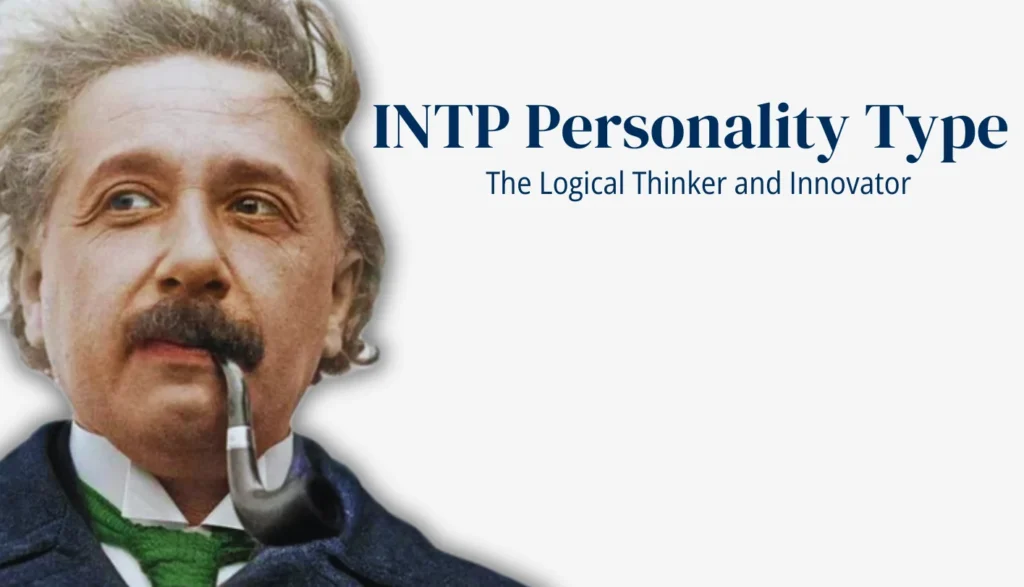The INTP, often referred to as “The Thinker” or “The Philosopher,” is one of the most analytical and creative personality types, making up about 3% of the population. Known for their sharp intellect, love of ideas, and quest for knowledge, INTPs are free thinkers who push the boundaries of thought.
But what truly defines an INTP? Is it their insatiable curiosity, their relentless logic, or their ability to see patterns everywhere? Whether you’re an INTP or just curious, let’s dive into what makes this personality type so fascinating.
Think you might be an INTP? 🔍 Take our free MBTI test to find out!
Key Traits of the INTP Personality
What Makes the INTP Unique
INTPs are independent thinkers who love exploring complex ideas and solving abstract problems. They are curious, logical, and have a talent for seeing connections between seemingly unrelated concepts. Here’s what sets them apart:
- Analytical and Logical: INTPs excel at breaking down problems into their fundamental components.
- Curious and Innovative: They love exploring new ideas and pushing the boundaries of knowledge.
- Independent and Free-Thinking: INTPs value their intellectual freedom and prefer to work alone.
- Reserved and Introspective: They spend a lot of time reflecting and analyzing their thoughts.
In a world that often values superficiality, INTPs are the ones who bring depth, creativity, and original thinking.
Strengths of the INTP
INTPs are known for their impressive strengths that make them exceptional thinkers and innovators. Here’s what makes them stand out:
- Sharp and Analytical Mind: INTPs have an extraordinary ability to solve complex problems.
- Creative and Visionary: They see possibilities where others see obstacles.
- Independent and Self-Sufficient: INTPs prefer to work alone and value their intellectual freedom.
- Open-Minded and Flexible: They love exploring new perspectives and challenging conventional ideas.
Weaknesses of the INTP
Even the brightest minds have their blind spots. For INTPs, these include:
- Difficulty Making Decisions: INTPs can struggle to choose between multiple options.
- Insensitive to Emotions: They may sometimes overlook others’ feelings in their quest for logic.
- Procrastinators: INTPs may delay practical tasks in favor of thinking.
- Reserved and Distant: They can come across as aloof or hard to approach.
While their strengths make them exceptional thinkers, their weaknesses remind us that even Logicians have areas to grow.
The INTP is like an endless puzzle—always searching for new pieces to complete the picture.
The INTP in Everyday Life
Relationships: Depth and Independence
INTPs approach relationships with curiosity and independence. They value intellectual exchanges and seek partners who can stimulate their minds. Here’s what makes them unique in love and friendships:
- Thoughtful Partners: INTPs are loyal and love discussing deep topics.
- Analytical Communicators: They prefer intellectual conversations over small talk.
- Independent and Respectful: INTPs value their personal space and that of others.
Careers: Where INTPs Thrive
INTPs excel in careers that allow them to explore ideas and solve complex problems. Here are some ideal professions:
- Scientist or Researcher: Exploring new theories and discoveries.
- Engineer or Programmer: Solving technical problems and creating innovative solutions.
- Philosopher or Writer: Analyzing and sharing complex ideas.
- Consultant or Strategist: Finding creative solutions to abstract problems.
Collaboration: Working with an INTP
If you’re collaborating with an INTP, here are a few tips to ensure a smooth partnership:
- Respect Their Independence: INTPs prefer to work alone and value their intellectual freedom.
- Challenge Their Mind: They love intellectual challenges and deep discussions.
- Be Patient: INTPs may take time to explore all options before deciding.
Myths vs. Realities About INTPs
Myth 1: “INTPs Are Cold and Distant”
Reality: While reserved, INTPs can be warm and caring with their loved ones.
Myth 2: “INTPs Aren’t Practical”
Reality: INTPs can be very practical when applying their logic to real-world problems.
Myth 3: “INTPs Avoid Responsibilities”
Reality: INTPs can be highly committed when they believe in a cause or project.
Myth 4: “INTPs Aren’t Creative”
Reality: INTPs are often highly creative, especially when solving complex problems.
Famous INTPs (Real and Fictional)
Albert Einstein – Visionary Scientist
Albert Einstein, the renowned physicist, embodies the INTP spirit with his insatiable curiosity, innovative thinking, and quest for knowledge. INTPs, like him, are often visionary, analytical, and love exploring complex ideas.
Marie Curie – Passionate Researcher
Marie Curie, the pioneering scientist, is a classic example of an INTP. Known for her dedication to research and ability to solve complex problems, Curie revolutionized science. INTPs, like her, are often passionate, independent, and curious.
Abraham Lincoln – Strategic Thinker
Abraham Lincoln, the former U.S. president, is a quintessential INTP. Known for his strategic thinking, relentless logic, and love for debates, Lincoln made history with his thoughtful leadership.
Sherlock Holmes (Fictional) – Analytical Detective
Sherlock Holmes, the famous fictional detective, embodies the INTP spirit with his sharp mind, relentless logic, and talent for solving complex mysteries. INTPs, like Holmes, are often analytical, curious, and love intellectual challenges.
Famous INTPs show that this personality shines through its curiosity, logic, and creativity.
The INTP – A Free-Thinking Innovator
The INTP is an analytical and creative personality type—a thinker, an innovator, and a master of logic. With their insatiable curiosity, sharp intellect, and desire to understand the world, they push the boundaries of thought. Yet, behind their reserved exterior lies a deep passion for ideas and knowledge.
Are you one of them? 🔍 Take our free MBTI test to discover if you’re part of this brilliant group of Thinkers!

